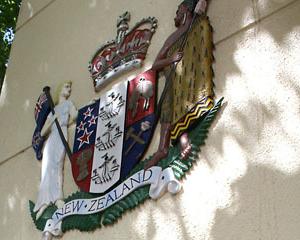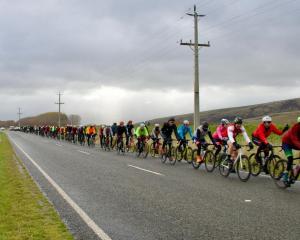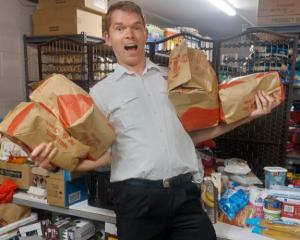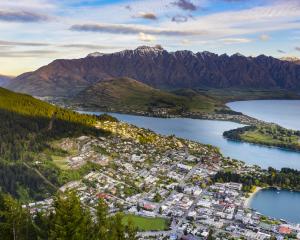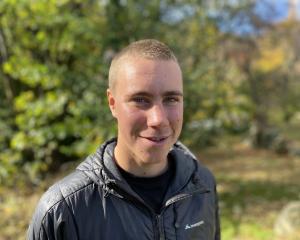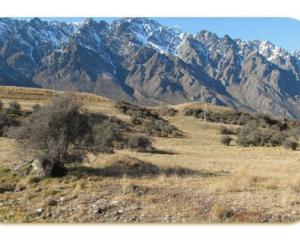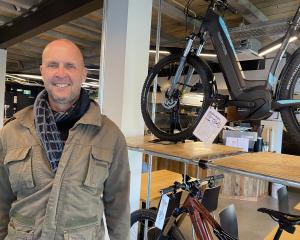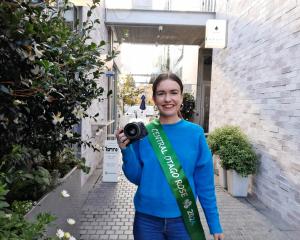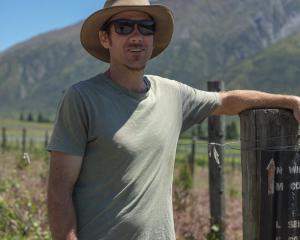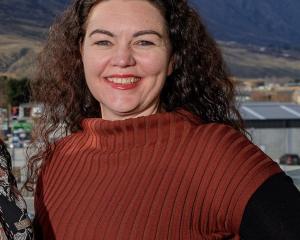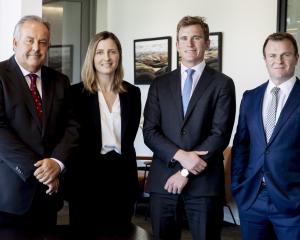Today we begin a new column by Queenstown priest Father Tony Harrison, who is working as a chaplain at McMurdo Station, Ross Island, Antarctica. It is his third stint in the Deep South after previous trips in 2003 and 2005. Over the next few weeks he will write exclusively for the Queenstown Times.
"Welcome to Antarctica where the current temperature is minus 35."
With those words we knew we had finally arrived on Pegasus Airfield, Antarctica. Pegasus is so called because nearby is the wreckage of a Super Constellation aircraft called Pegasus.
We were scheduled to leave Christchurch on Tuesday, September 29, but were delayed because of bad weather at McMurdo. Wednesday was supposed to be "all go" and we arrived at the Antarctic Centre for 6am check-in and 9am departure.
Excitement grew as we taxied to the end of the runway. Full thrust drove us back into our seats. The aircraft was gaining more and more speed, when suddenly engine power was reduced, brakes applied; full reverse thrust had us thrown forward in our seats. We stopped safely and taxied again to the end of the runway as the crew sorted out the problem.
Again, full thrust and we finally lifted off. Smiles all around; but 40 minutes later we were turning back to Christchurch Airport to have a fault repaired. This time we were not going to fly again that day. Safety is of prime importance when it comes to getting to Antarctica and working there because it is a long way from help.
Finally, on Saturday morning, we were really on our way to the Antarctic. Seated beside me was Sandi Dillon, also from Queenstown, who is working as a medic at Scott Base through the summer season.
Seating on the huge C17 Globemaster 111 aircraft is not allocated. You are just encouraged to fill the seats from the back. It is the wisdom of those who have travelled before that enables one to get a better seat. There is no "first class" area but some seats are better than others - who wants to be seated outside the toilet door?
The journey takes five hours. A meal - a paper bag containing two small packets of potato chips, a pack of two sandwiches, a chocolate bar and a muesli bar plus an apple and a bottle of water - is served.
In-flight entertainment is provided by yourself. Books, iPods and computers all serve to fill in the time.
Our delays in Christchurch caused major logistical problems. People arriving from the United States have to be accommodated during this time. The accommodation gets more and more expensive as the numbers arriving increase and beds have to be found in other hotels.
As well, there are the people who have wintered over and are waiting to leave McMurdo. They have made travel arrangements and are becoming more nervous.
I am glad that it is not my problem.
After more than five hours inside the aircraft, with only a few portholes to look out (if you can get near one) we stepped out into the bright Antarctic sunshine. More than 80 people were there waiting for us to disembark so that they could board to begin their journey home.
But there were welcomes and reunions just the same. Some people have been coming here for many years, including another Tony, who has been working at Black Island each year since 1987.
Black Island is the transmission site for contact between McMurdo and the outside world and is an isolated place to be working.
Sunday, as always for the clergy, is a day of work. For the next month I will be working alongside Mark Smith, who is a chaplain with the Air National Guard.
We will give pastoral care to more than 1500 people who are working here on the windiest, coldest and driest continent in the world.
FATHER TONY HARRISON
• Dunedin-born and raised
• Ordained in 1972
• Formerly St Joseph's Cathedral parish priest, Dunedin
• Began army chaplaincy work 2002
• Appointed parish priest St Joseph's Catholic Church, Queenstown, January 2009

